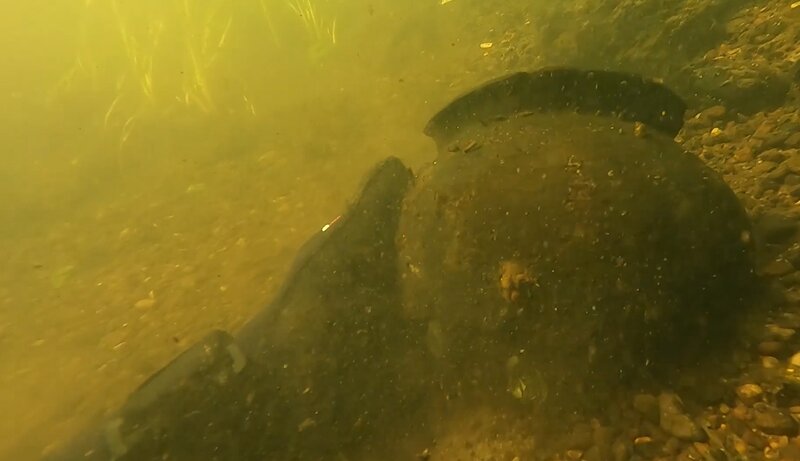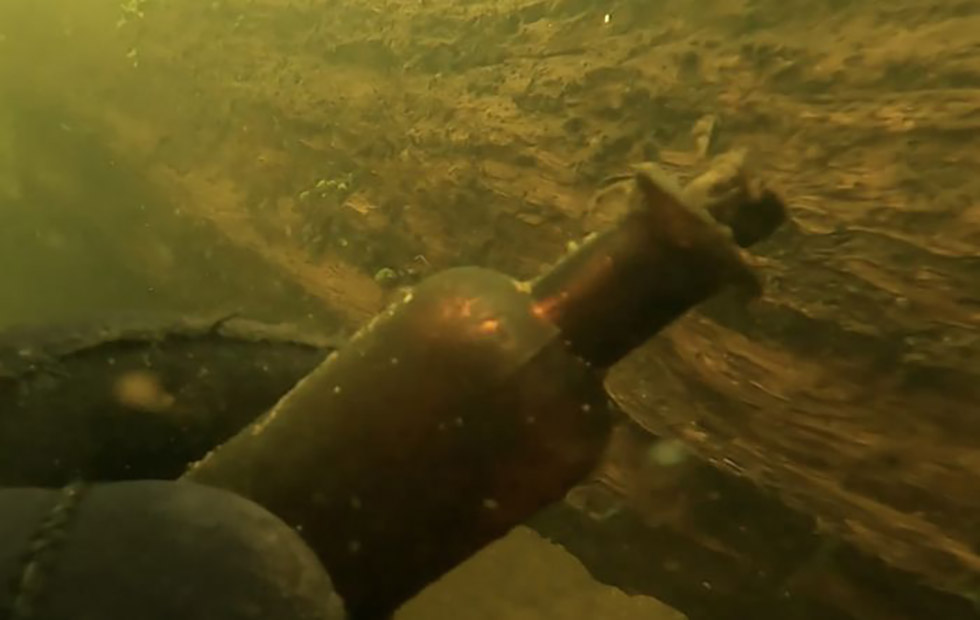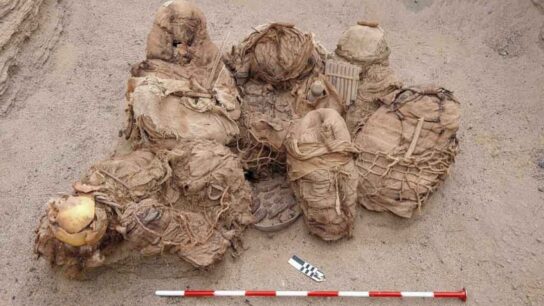1930s Medicine Bottle Unearthed in Poland’s Gwda River: A Fascinating Discovery
Archaeology enthusiasts have uncovered a perfectly preserved pharmaceutical bottle with herbal ‘heart’ drops from the 1930s, alongside the remains of a medieval clay pot from the bottom of a river.
The team led by Dr. Jarosław Rola from the Stanisław Staszic Regional Museum in Piła stumbled upon the discovery while combing through the river Gwda in western Poland.
The oldest discovery was a large fragment of a clay pot from the end of the early medieval period, dating back to between the 12th-13th century, which was found in the river near the town of Motylewo and Stanisław Staszic Regional Museum in Piła.
News of the discoveries was announced by the museum on their Facebook page alongside a film of each of the objects found.
Introducing the second find, the museum wrote: “The Gwda conceals many secrets and surprises.

“Among this year’s discoveries, we find a curiosity: a pharmaceutical bottle, almost certainly from the 1930s, with perfectly preserved contents.
“They are herbal drops for the stomach or heart.
The latest archaeological search of the Gwda is part of studies of the river which have been ongoing for several years.
Up until now, the river has turned up a 2,000-year-old drinking mug and a fragment of a 17th-century bridge.
The latest objects found will be added to the collections of the Stanisław Staszic Regional Museum in Piła.




